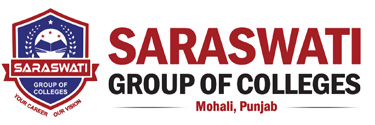SGC Gharuan: Nursing College, Ayurveda College, Pharmacy College
Shaping the next generation of leaders
We’re nurturing the next generation of medical leaders to break boundaries and shape the future of healthcare.
Teaching Practices

Our curriculum promotes the development of essential skills and knowledge while equipping our students with the expertise they need for their chosen careers. Our teaching methodologies and strategies facilitate a constant exchange of knowledge, fostering open communication between teachers and learners. We strive to stay on top of rapidly evolving market realities and global advances so that our PU classes are kept up-to-date.
Shaping the next
generation of leaders
Whether an instructor teaches a seminar, lecture, or another type of course, they have at their disposal a variety of proven strategies for leading classroom discussions, improving lectures, cultivating collaborative learning, and teaching large classes. They might consider active learning, a research-supported method that can lead to positive learning outcomes. Instructors can reserve SGC’s Technology-Enhanced Active Learning (TEAL) Seminar to support this type of student-centered teaching and learning.
Active Learning
Growing from developments in adult, cognitive, and educational research, active learning responds to traditional lecture formats with more engaged activities that invite students to participate in learning, including developing conceptual awareness, applying knowledge through experience, and transferring skills across contexts.
TEAL
Technology-Enhanced Active Learning
Growing from developments in adult, cognitive, and educational research, active learning responds to traditional lecture formats with more engaged activities that invite students to participate in learning, including developing conceptual awareness, applying knowledge through experience, and transferring skills across contexts.
Case-Based Learning
Case-based learning (CBL) is an established approach used across disciplines where students apply their knowledge to real-world scenarios, promoting higher levels of cognition. In CBL classroom, students typically work in groups on case studies, or stories involving one or more characters and/or scenarios. The cases present a disciplinary problem or problems for which students devise solutions under the guidance of the instructor.
Team-Based Learning
Team-based learning (TBL) is a pedagogical strategy that engages student knowledge through individual testing and group collaboration. Following individual answers, students join teams and work through problems, appealing when they are incorrect. This process motivates students by holding them accountable to themselves and one another, while introducing them to a variety of thought processes devoted to a single problem.
Effective Lecturing
Lecture classes are often characterized by monologue and slide presentations, typically in large halls with auditorium-style fixed seating that privileges content delivery over interaction and complex learning. Instructors can consider different approaches to lecture that introduce more active and participatory components, thereby enhancing higher orders of thinking and learning during class.
AV AID Room
In a Av aid classroom, material typically explored in lecture is delivered outside of class through media like video lectures or digital modules. Class time then focuses on developing knowledge through active learning strategies like discussion or group activities. Flipping the classroom has been shown to improve students’ conceptual grasp of content beyond memorization and basic knowledge, and to improve the diversity and inclusivity of the classroom climate.






